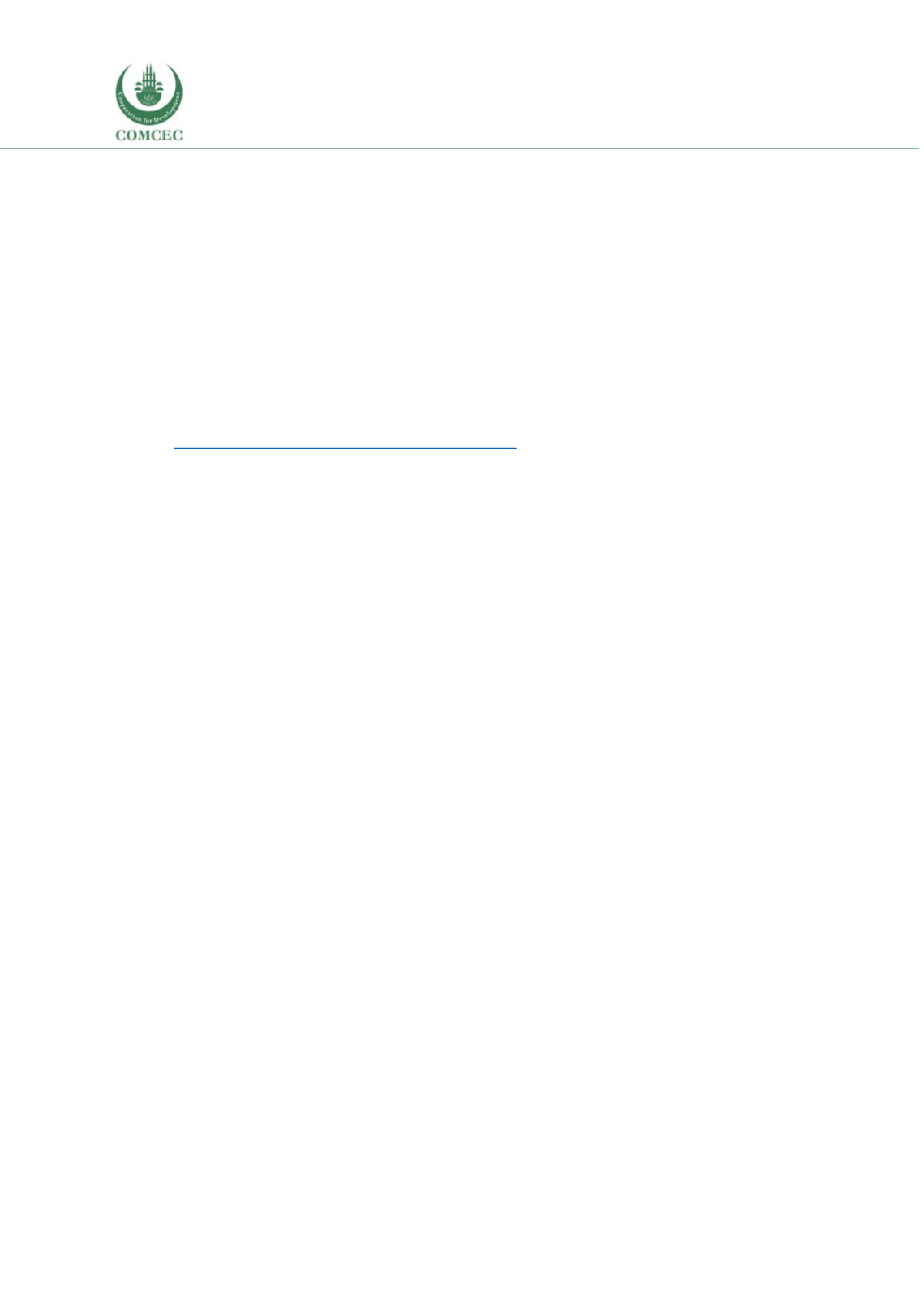

Education of Disadvantaged Children in OIC:
The Key to Escape from Poverty
200
Overview of OIC Countries
Akresh, R., De Walque, D., & Kazianga, H. (2013). Cash transfers and child schooling: Evidence
from a randomized evaluation of the role of conditionality
The World Bank Policy
Research Working Paper Series:6340
.
Albaugh, E. A. (2014).
State-building and Multilingual Education in Africa
New York: Cambridge
University Press.
American Psychological Assocation Presidential Task Force on Educational Disparities. (2012).
Ethnic and Racial Disparities in Education: Psychology's Contributions to Understanding
and Reducing Disparities.
Andrabi, T., Das, J., & Khwaja, A. I. (2013). Students today, teachers tomorrow: Identifying
constraints on the provision of education.
Journal of Public Economics, 100
, 1-14. doi:
http://doi.org/10.1016/j.jpubeco.2012.12.003Andrabi, T., Das, J., & Khwaja, A. I. (2015). Report Cards : The Impact of Providing School and
Child Test Scores on Educational Markets. Policy Research Working Paper; No. 7226.
Washington D.C.: World Bank.
Ayala, F. (2005). Familias en Accion Colombia
Policy Brief 2
. London: The Secretariat of the Inter-
Regional Inequality Facility at the Overseas Development Institut.
Ballou, D. (1996). Do public schools hire the best applicants?
The Quarterly Journal of Economics
,
97-133.
Banerjee, A. V., Cole, S., Duflo, E., & Linden, L. (2007). Remedying Education: Evidence from Two
Randomized Experiments in India*.
The Quarterly Journal of Economics, 122
(3), 1235-
1264. doi: 10.1162/qjec.122.3.1235
Barrera-Osorio, F., Blakeslee, D. S., Hoover, M., Linden, L. L., & Raju, D. (2011). Expanding
Educational Opportunities in Remote Parts of the World: Evidence from an RCT of a
Public-Private Partnership in Pakistan
Working paper
: Third Institute for the Study of
Labor (IZA)
Bender, P., Dutcher, N., Klaus, D., Shore, J., & Tesar, C. (2005). In their own language : education
for all. Education Notes. Washinto D.C.: World Bank.
Benhassine, N., Devoto, F., Duflo, E., Dupas, P., & Pouliquen, V. (2015). Turning a Shove into a
Nudge? A "Labeled Cash Transfer" for Education.
American Economic Journal: Economic
Policy, 7
(3), 86-125. doi: doi: 10.1257/pol.20130225
Bertoncino, C., Murphy, P., &Wang, L. (2002). Achieving Universal Primary Education in Uganda
: The ‘Big Bang’ Approach
Education Notes
. Washington D.C.: World Bank.
Bjorkman, M. (2006). Does money matter for student performance? Evidence from a grant
program in Uganda
Working Paper
. Stockholm: Institute for International Economic
Studies (IIES), Stockholm University.
Brixi, H., Lust, E., &Woolcock, M. (2015).
Trust, Voice, and Incentives : Learning from Local Success
Stories in Service Delivery in the Middle East and North Africa
. Washington D.C.: World
Bank.
Brooks-Gunn, J., Duncan, G., & Britto, P. (1999). Are socioeconomic gradients for children similar
to those of adults? Achievements and health of children in the United States. In D.
















